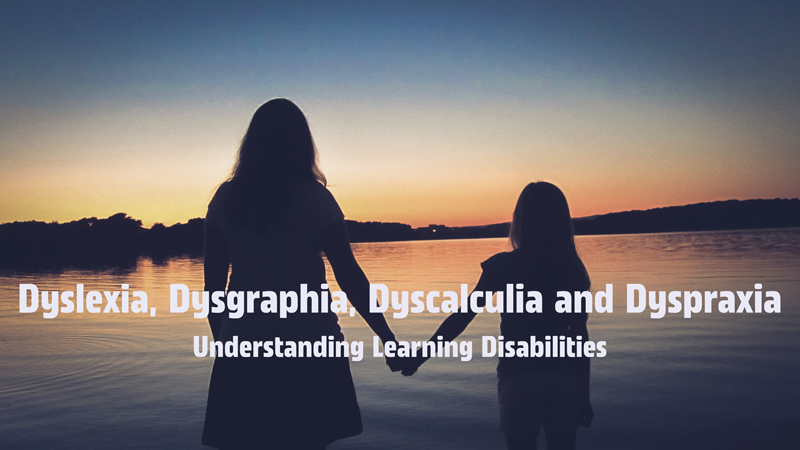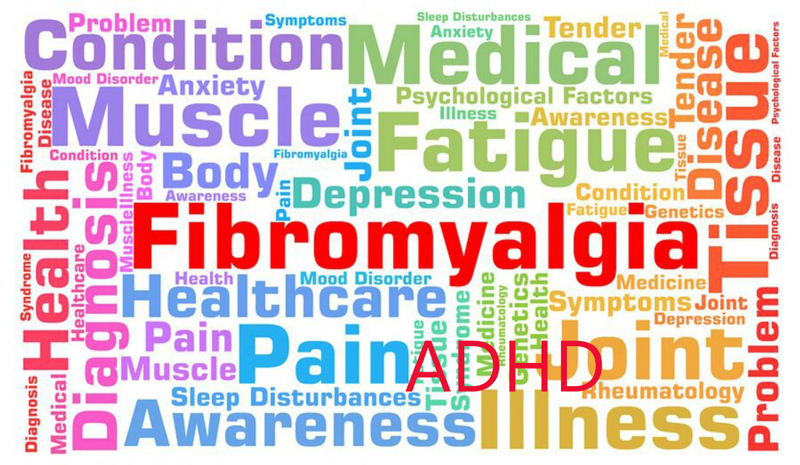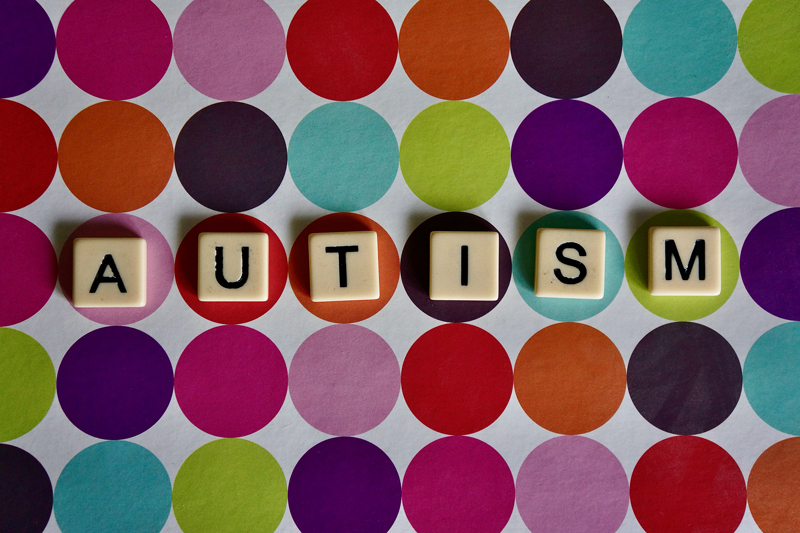Dyslexia, Dysgraphia, Dyscalculia and Dyspraxia - Learning Disabilities
Oct. 10, 2023 #ADHD
Introduction
Learning differences manifest in various ways, impacting individuals in unique ways. Dyslexia, dysgraphia, dyscalculia and dyspraxia are terms that represent distinct challenges in the realm of learning. This article aims to define each condition, highlight the differences, delve into symptoms, explore diagnosis and discuss available treatments.
Defining Dyslexia
Dyslexia is a neurodevelopmental disorder that affects reading, spelling and writing. Individuals with dyslexia may struggle with decoding words, recognizing letters and understanding the relationship between sounds and letters. It is crucial to note that dyslexia is not indicative of intelligence; many individuals with dyslexia exhibit average or above-average intelligence.
Defining Dysgraphia
Dysgraphia pertains to difficulties in writing, both in terms of handwriting and composition. Individuals with dysgraphia may struggle to express their thoughts coherently in written form and they might experience challenges with fine motor skills involved in handwriting. This condition is distinct from dyslexia, focusing specifically on writing-related difficulties.
Defining Dyscalculia
Dyscalculia is characterized by difficulties in understanding and working with mathematical concepts. Individuals with dyscalculia may struggle with basic arithmetic, recognizing numerical symbols and comprehending mathematical operations. Despite these challenges, individuals with dyscalculia may excel in other areas and possess normal or above-average intelligence.
Defining Dyspraxia
Dyspraxia, or developmental coordination disorder (DCD), relates to difficulties in motor coordination and planning. Individuals with dyspraxia may experience challenges with tasks that involve fine or gross motor skills, such as tying shoelaces, handwriting or participating in sports. Dyspraxia is not a result of muscle weakness but rather a difficulty in coordinating movements.
Differences between Dyslexia, Dysgraphia, Dyscalculia and Dyspraxia
Dyslexia vs. Dysgraphia:
Dyslexia primarily affects reading and language skills, while dysgraphia focuses on difficulties in writing and expression. Dyslexia involves challenges in decoding written language, whereas dysgraphia centers on the physical act of writing.
Dyslexia vs. Dyscalculia:
Dyslexia and dyscalculia are distinct in that dyslexia affects reading and language, while dyscalculia involves challenges in mathematical concepts and operations. Dyslexia may not necessarily impact mathematical abilities and an individual with dyslexia may excel in math.
Dyslexia vs. Dyspraxia:
Dyslexia and dyspraxia are different in scope, with dyslexia focusing on language and reading, while dyspraxia involves motor coordination difficulties. An individual with dyslexia may not necessarily experience challenges in motor skills, while dyspraxia is characterized by difficulties in coordination.
Dysgraphia vs. Dyscalculia:
Dysgraphia and dyscalculia differ as dysgraphia pertains to writing challenges, and dyscalculia involves difficulties in mathematics. While both conditions may coexist in some individuals, they target distinct cognitive domains.
Dysgraphia vs. Dyspraxia:
Dysgraphia and dyspraxia are related to motor skills but in different contexts. Dysgraphia focuses on the act of writing, while dyspraxia involves broader challenges in motor coordination and planning.
Dyscalculia vs. Dyspraxia:
Dyscalculia and dyspraxia both involve challenges with coordination, but dyscalculia is specific to mathematical concepts, while dyspraxia encompasses broader motor coordination difficulties.
Symptoms of Dyslexia, Dysgraphia, Dyscalculia and Dyspraxia
Dyslexia Symptoms:
- Difficulty in decoding words.
- Problems with spelling.
- Slow or inaccurate reading.
- Difficulty in understanding and using phonological information.
Dysgraphia Symptoms:
- Poor handwriting.
- Challenges in organizing thoughts in writing.
- Difficulty in grammar and punctuation.
- Avoidance of writing tasks.
Dyscalculia Symptoms:
- Difficulty in understanding mathematical concepts.
- Struggles with basic arithmetic.
- Challenges in recognizing numerical symbols.
- Poor sense of numerical magnitude.
Dyspraxia Symptoms:
- Poor coordination and balance.
- Difficulty in fine and gross motor skills.
- Challenges in planning and organizing movements.
- Avoidance of physical activities.
Diagnosis and Treatments
Diagnosis:
Dyslexia: Diagnosis involves assessments of reading skills, phonological processing and language abilities. Educational psychologists or specialized professionals conduct these assessments.
Dysgraphia: Diagnosis includes evaluations of writing skills, motor coordination and expressive language abilities. Educational psychologists or occupational therapists often perform these assessments.
Dyscalculia: Diagnosis involves assessments of mathematical abilities, numerical reasoning and problem-solving skills. Educational psychologists or specialists in math learning disabilities conduct these evaluations.
Dyspraxia: Diagnosis includes evaluations of motor coordination, balance and planning abilities. Occupational therapists or developmental pediatricians often conduct these assessments.
Treatments:
Dyslexia: Interventions may include specialized reading programs, phonics instruction, and assistive technologies. Individualized education plans (IEPs) can support accommodations in the academic setting.
Dysgraphia: Treatment involves occupational therapy to improve fine motor skills and writing techniques. Assistive technologies and accommodations, such as allowing typing instead of handwriting, can be beneficial.
Dyscalculia: Interventions may include specialized math programs, multisensory approaches and visual aids. Individualized strategies and accommodations support academic success.
Dyspraxia: Treatment includes occupational therapy to enhance motor coordination, balance and planning. Physical activities and exercises may be incorporated to improve overall coordination.
Conclusion: Nurturing Individual Potential
Understanding and addressing learning differences such as dyslexia, dysgraphia, dyscalculia, and dyspraxia are vital steps toward nurturing individual potential. By recognizing the unique challenges each condition presents, educators, parents and healthcare professionals can tailor interventions to empower individuals to thrive academically and in daily life.
Embracing diverse learning styles contributes to a more inclusive and supportive educational environment, fostering the success and well-being of individuals with these learning differences.









COMMENTS